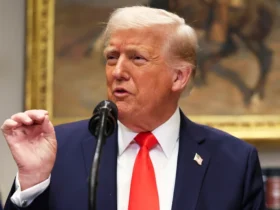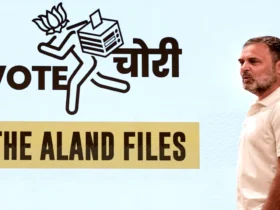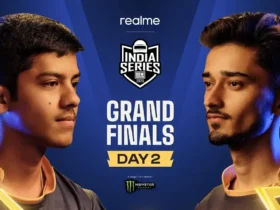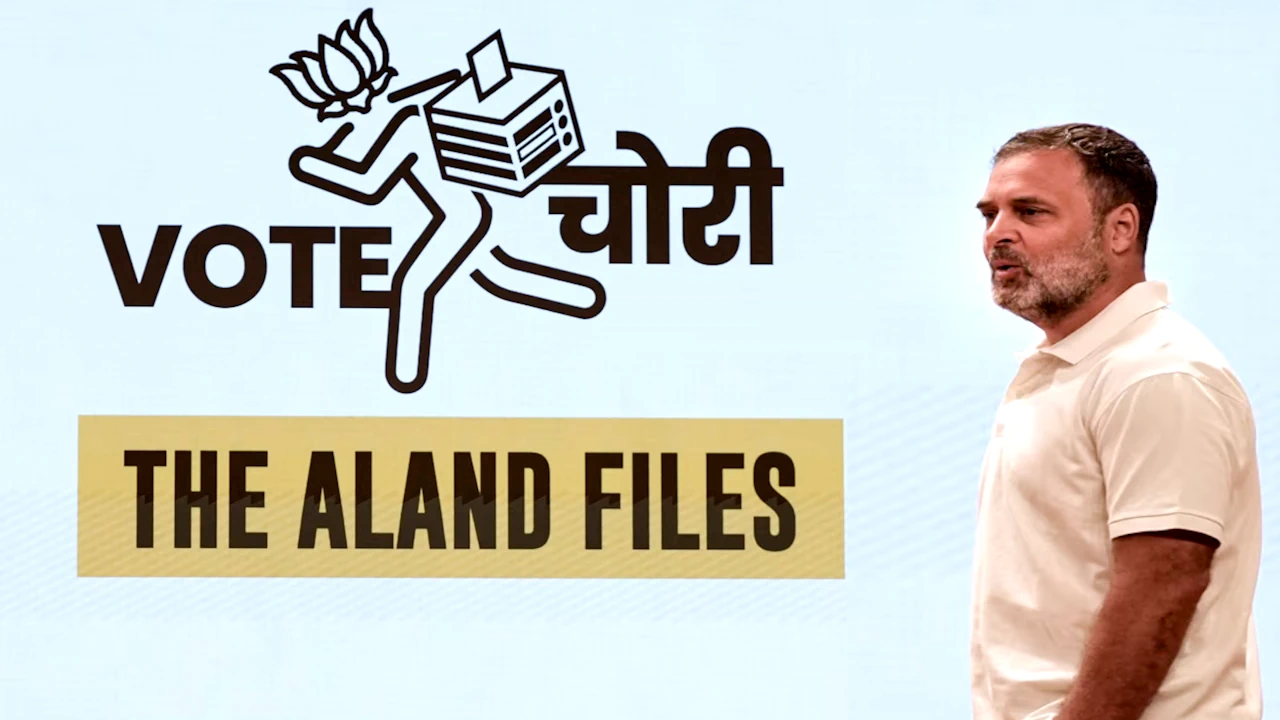Rahul Gandhi has once again taken on the Election Commission (EC)—this time over alleged irregularities in voter deletions in Karnataka’s Aland Assembly constituency in 2023. On September 18, the Leader of Opposition claimed that more than 6,000 names were targeted for wrongful deletion from the rolls, accusing Chief Election Commissioner Gyanesh Kumar of “shielding those destroying democracy.”
The Election Commission rejected his charges, calling them “baseless,” but admitted that unsuccessful attempts were made to delete names in Aland. Importantly, the EC clarified that it had itself filed an FIR to probe the issue.
What Rahul Gandhi alleged
Rahul Gandhi claimed:
-
In Aland, 6,018 voter names were targeted for deletion in 2023.
-
The Karnataka CID sought IP addresses and OTP trails linked to online deletion requests, but the EC didn’t share them.
-
A booth-level officer (BLO) discovered the malpractice when her own uncle’s name was deleted. Investigation revealed that the applications were filed using software, allegedly from outside Karnataka, often targeting Congress voters.
The Aland case in 2023
This issue first came to light when Congress MLA B.R. Patil filed a complaint with the EC. According to an FIR filed by Assistant Electoral Registration Officer Mamatha Kumari:
-
6,670 names were flagged for deletion between Dec 2022 and Feb 2023 via EC apps.
-
Of these, 5,994 were found suspicious.
-
Many voters weren’t even aware that objections had been filed against their names.
-
Only 24 cases turned out to be genuine deletions (due to shifting or death).
The FIR invoked IPC sections related to cheating and forgery.
Who can request deletion of names?
As per the Representation of the People Act, 1950, only an Electoral Registration Officer (ERO) can delete or correct entries, and that too after proper inquiry and notice to the voter.
Deletions can happen if:
-
The person has died.
-
They have shifted residence.
-
They are not entitled to be on the roll.
In addition:
-
Any voter of the constituency can object to a name via Form 7.
-
The BLO (Booth Level Officer)—a local government worker like a teacher or anganwadi worker—can also raise objections after field verification.
Form 7 can be submitted online or offline, but deletions cannot be finalised without inquiry, notice, and hearing.
What is Form 7?
Form 7 is the EC’s official form to request inclusion or deletion of names. It is used when:
-
A voter has shifted or died.
-
A name is duplicated.
-
A person is underage or ineligible.
Applicants must declare the information truthfully—false claims can lead to imprisonment or fines.
EC’s clarification
Responding to Gandhi’s charge, the EC reiterated:
-
“No vote can be deleted online by the public.”
-
Every deletion requires inquiry and opportunity to the voter.
-
In Aland, it was the EC itself that filed the complaint, ensuring action was taken.
The commission also pointed out that affected voters have two levels of appeal—first before the District Magistrate, and then the Chief Electoral Officer of the state.
















Leave a Reply